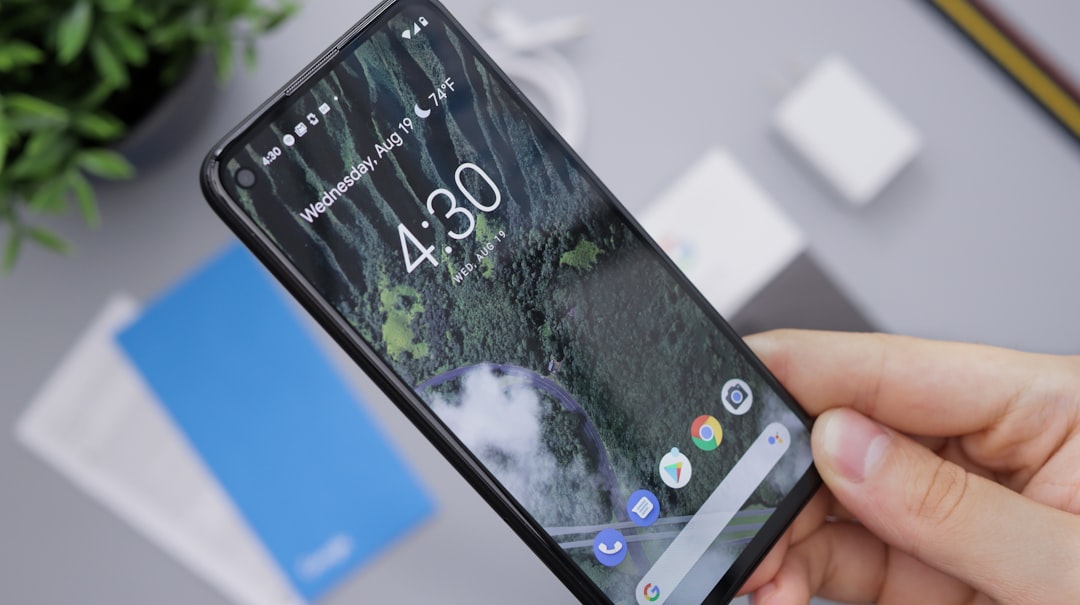South Carolina residents are protected from unwanted telephone solicitations and robocalls by the Telephone Consumer Protection Act (TCPA) and No Call Laws. Consumers can assert their "do not call" status, file complaints with the FTC, or hire specialized attorneys for legal action against persistent robocallers. Reputable No Call Laws lawyers in South Carolina offer guidance on consumer rights protection and can represent clients in court if necessary.
In South Carolina, the Telephone Consumer Protection Act (TCPA) empowers residents to protect their privacy from unwanted phone calls, particularly robocalls. Understanding your rights under South Carolina’s No Call Laws is crucial for every resident. This comprehensive guide breaks down your rights, how to navigate telemarketers, and the role of the Federal Trade Commission (FTC). Learn about legal actions against violators and find tips on choosing the right attorney or law firm specializing in No Call Laws and robocall cases in South Carolina.
- Understanding South Carolina's No Call Laws: A Comprehensive Guide
- Your Rights as a South Carolina Resident Against Robocalls
- Navigating Telemarketers: When and How to Say No
- The Role of the Federal Trade Commission (FTC) in Protecting Consumers
- Legal Actions Against Violators: What You Need to Know
- Choosing the Right Attorney for Your No Call Law Case in SC
- Common Robocall Scams and How to Spot Them
- Effective Strategies to Reduce Unwanted Phone Calls
Understanding South Carolina's No Call Laws: A Comprehensive Guide
In South Carolina, the No Call Laws are designed to protect residents from unwanted telephone solicitations and robocalls. As a consumer, you have the right to refuse marketing calls and have your number added to the Do Not Call list. A reputable No Call Laws lawyer or attorney in South Carolina can help you understand these rights and navigate any issues that arise. If you’ve been disturbed by frequent robocalls, it’s advisable to consult a local law firm specializing in No Call Laws to explore your legal options.
These laws not only restrict telemarketers from making unsolicited calls but also provide guidelines for businesses engaging in promotional activities. By hiring a robocall attorney or a lawyer for robocall in South Carolina, you gain access to professionals who can ensure compliance with these regulations and help you assert your rights as a consumer. Many No Call Laws law firms offer comprehensive guidance on how to handle persistent robocalls and take appropriate legal action if necessary.
Your Rights as a South Carolina Resident Against Robocalls
As a resident of South Carolina, you have specific rights under the Telephone Consumer Protection Act (TCPA) to protect yourself from unwanted robocalls. The TCPA prohibits automated or prerecorded calls from being placed to residential telephone numbers unless the caller has your prior express consent. If you are receiving recurring robocalls, you may be able to take legal action against the caller.
Hiring a lawyer who specializes in no-call laws and robocall litigation can help protect your rights and seek compensation for any harassment or inconvenience caused by unwanted calls. Robocall attorneys in South Carolina can guide you through the legal process, file a complaint with the Federal Communications Commission (FCC), and even represent you in court if necessary. Don’t hesitate to reach out to a reputable no-call laws law firm in South Carolina to discuss your options and ensure your rights are upheld.
Navigating Telemarketers: When and How to Say No
Navigating unwanted telemarketer calls can be a constant nuisance. However, South Carolina residents have rights protected by the Telephone Consumer Protection Act (TCPA). If you wish to stop receiving calls from telemarketers, you have the legal right to demand they cease. This process starts with asserting your “do not call” status. You can do this by politely but firmly telling the caller to remove your number from their list, and confirming in writing if possible. Many telemarketers comply when asked directly, but if persistent calls continue, it’s time to involve a specialist.
Hiring a No Call Laws lawyer or attorney in South Carolina who specializes in robocall cases is an effective step. These legal professionals can help you understand your rights and take appropriate action against companies violating the TCPA. They can send cease-and-desist letters, file complaints with relevant authorities, and even represent you in court if necessary. With their expertise, they’ll ensure you receive the respect for your “do not call” wishes while helping to protect others from similar unwanted calls.
The Role of the Federal Trade Commission (FTC) in Protecting Consumers
The Federal Trade Commission (FTC) plays a pivotal role in safeguarding consumer rights, particularly when it comes to enforcing telephone consumer protection laws in South Carolina and across the nation. As the primary regulator tasked with promoting fair business practices, the FTC actively monitors and takes action against entities that violate no-call laws. These laws are designed to prevent unwanted phone marketing calls, offering consumers peace of mind and control over their communication preferences.
In South Carolina, where no-call laws are in place to protect residents from excessive robocalls, the FTC provides a crucial support system. They offer guidelines and resources for consumers to understand their rights and report abusive calls. Additionally, the FTC works closely with lawyers and law firms specializing in no-call laws (also known as robocall attorneys) to investigate and prosecute companies engaging in fraudulent or harassing phone marketing activities. This collaborative effort ensures that consumers have access to legal representation when dealing with robocalls, empowering them to take action against violators and uphold their rights under the Telephone Consumer Protection Act.
Legal Actions Against Violators: What You Need to Know
If your phone is bombarded with unwanted robocalls or calls in violation of South Carolina’s No Call Laws, you have legal rights and options. Many consumers are unaware that they can take action against violators, holding them accountable for their actions. If you’ve experienced persistent or unauthorized calls, consulting a No Call Laws lawyer South Carolina is a crucial step. These specialists are well-versed in the state’s consumer protection regulations and can guide you through the legal process.
Robocall attorneys South Carolina and law firms specializing in No Call Laws have the expertise to navigate these complex matters. They can assist with filing complaints, negotiating settlements, or even pursuing litigation against companies or individuals who disregard the state’s privacy regulations. Don’t let persistent robocalls go unanswered; reach out to a robocall attorney South Carolina to protect your rights and put an end to unwanted calls.
Choosing the Right Attorney for Your No Call Law Case in SC
When navigating a No Call Laws case in South Carolina, selecting the appropriate legal counsel is paramount to achieving a favorable outcome. You’ll want a No Call Laws attorney who not only understands the intricacies of SC’s consumer protection laws but also has a proven track record in handling similar cases. Look for a robocall lawyer with expertise in telemarketing and communication regulations, as this ensures they stay abreast of any legislative changes that could impact your case.
Consider a No Call Laws law firm with a reputation for aggressive advocacy and a deep understanding of the local justice system. A reputable firm will offer personalized attention, ensuring your unique circumstances are thoroughly assessed. They should also provide transparent communication throughout the process, keeping you informed about developments in your case. Engaging such an attorney or law firm significantly increases your chances of asserting and protecting your rights under South Carolina’s No Call Laws effectively.
Common Robocall Scams and How to Spot Them
In today’s digital era, the rise of robocalls has become a pervasive issue, targeting consumers across the nation, including South Carolina. These automated phone calls, often promoting various products or services, have given birth to numerous scams designed to exploit the No Call Laws that exist to protect residents. Common robocall scams include fraudulent offers promising prize winnings, fake charity collections, and impersonation of government agencies demanding immediate payment.
To identify these scams, South Carolina residents should be vigilant about unexpected calls and never provide personal or financial information over the phone unless they have initiated the call and are certain of its legitimacy. Look out for automated voice messages with urgent requests, repetitive calls from unknown numbers, or calls claiming to represent official bodies without proper identification. Consulting a lawyer specializing in No Call Laws can help individuals understand their rights and take legal action against persistent or malicious robocallers. Engaging the services of a reputable law firm experienced in handling robocall cases, such as those offering No Call Laws attorney or robocall attorneys South Carolina services, can ensure the protection of your rights under state laws.
Effective Strategies to Reduce Unwanted Phone Calls
In today’s digital era, unwanted phone calls from telemarketers and robocalls have become a widespread nuisance. However, South Carolina residents have legal protections in place to reduce these intrusions into their personal space. The key lies in understanding and utilizing the state’s No Call Laws. A reputable No Call Laws lawyer or attorney in South Carolina can guide individuals on how to register their phone numbers on the Do Not Call list, a powerful tool to block most commercial calls.
Additionally, employing specific strategies recommended by robocall attorneys and law firms in South Carolina can further safeguard against unwanted calls. Installing call-blocking apps or using advanced voicemail systems that automatically filter out suspicious numbers are effective measures. Moreover, staying informed about the laws governing these practices ensures residents can take legal action if their rights are violated, making them less susceptible to robocalls and empowering them to seek justice from a lawyer for robocall in South Carolina when necessary.






